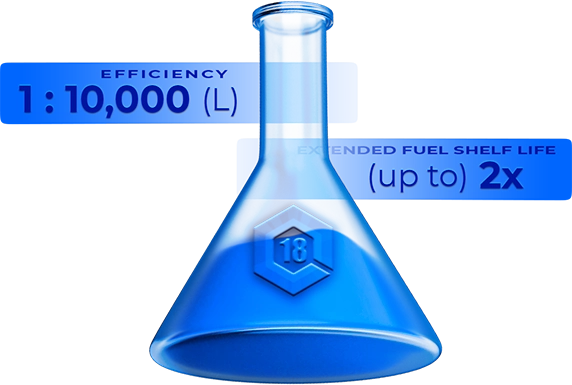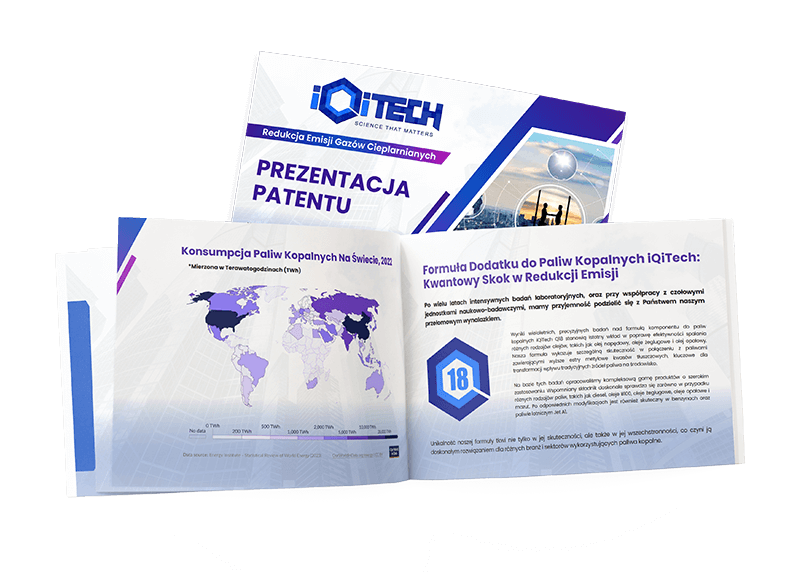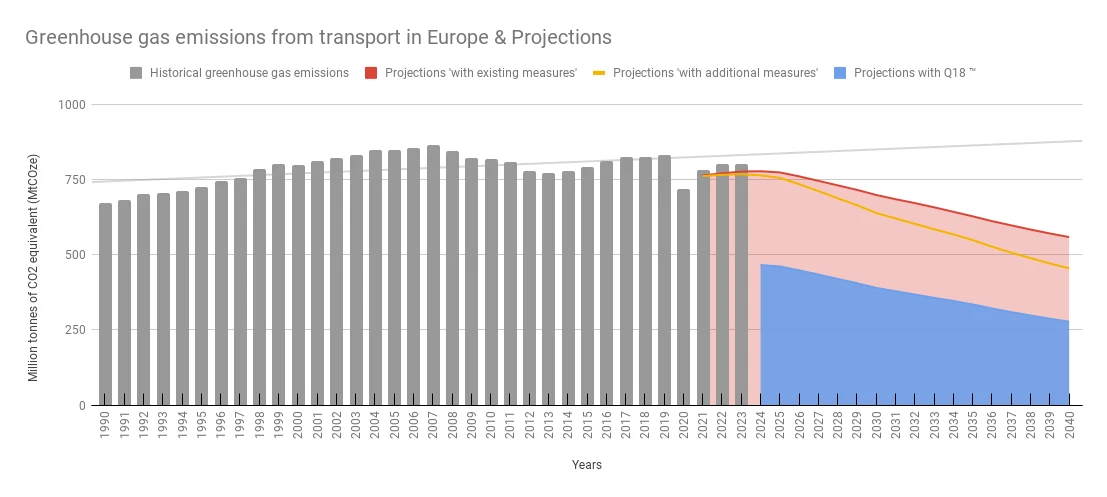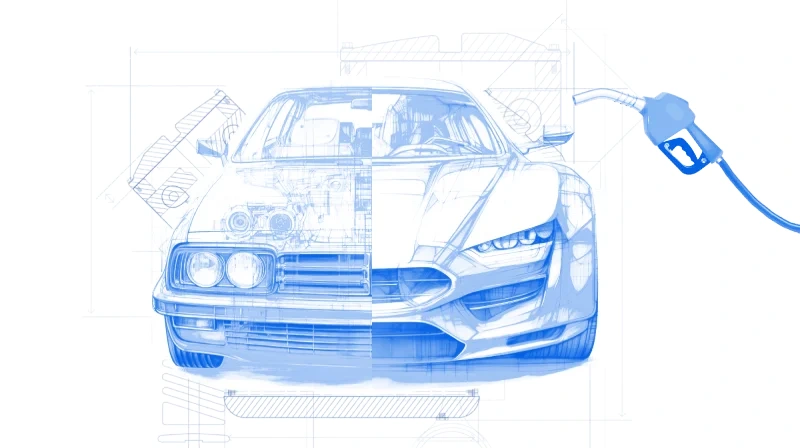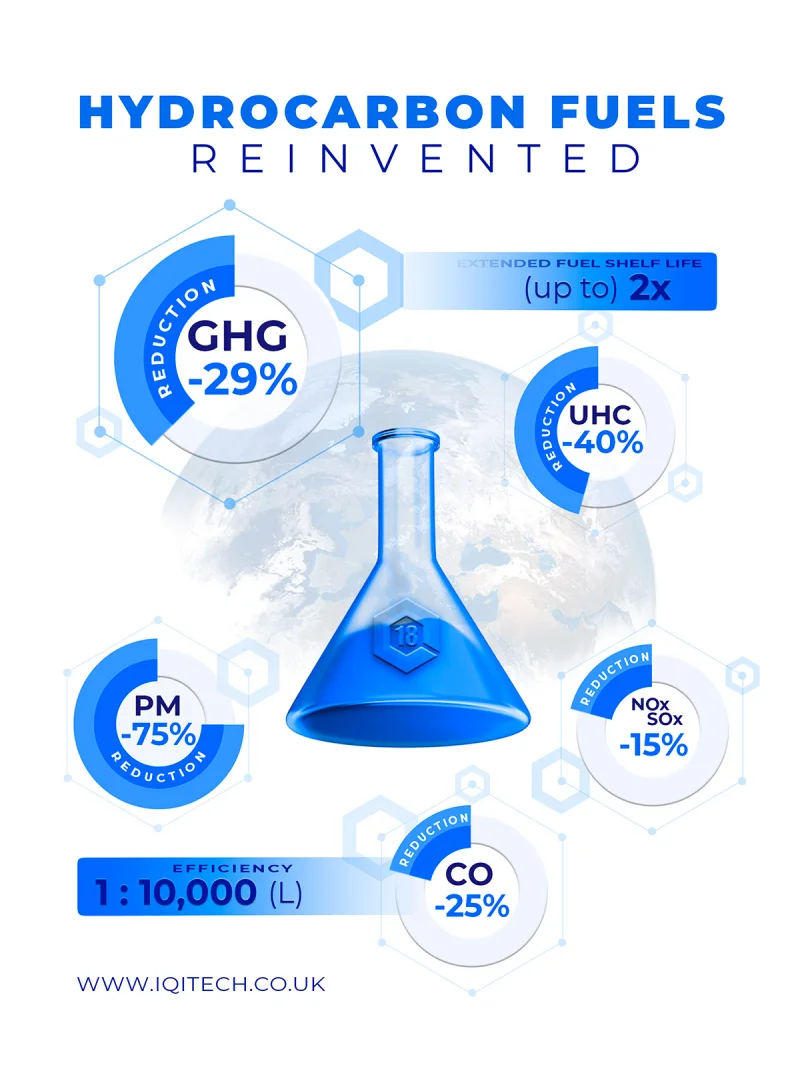Do Fossil Fuels Still Have a Reason to Exist in the Face of The Inevitable Energy Transformation?
Absolutely – Not only have they, but even before this transformation takes place, petroleum fuels will constitute the basis of the world economy for many years to come. That’s why we have developed the world’s first
breakthrough component for fuel production
that radically reduces emissions of harmful gases into the environment by optimizing combustion processes:

- Reduction of CO₂e Emissions* 29%
- Reduction of CO Emissions* 25%
- Reduction of other harmful gases (NOX, SOX) Emissions* 15%
- Reduction of Fuel Consumption (up to)* 12%
- Reduction of Unburned Hydrocarbons (THC) Emissions* 40%
- Reduction of Particulate Matter (PM) Emissions* 75%
* The Above Charts Represent General Reductions, As Our Formula Has Been Designed To Allow Further Modifications For Specific Fuels And Special Purposes, Meeting The Most Stringent Requirements. For This Reason, The Obtained Results May Be Even Better. All Information Provided By Us Is Supported By Relevant Research, Which Is Available For Review By Interested Parties. Our Formula Is Patented And Protected By International And European Law.
In the case of the combustion of fossil fuels, the main harmful by-products, in addition to greenhouse gases, are nitrogen oxides (NOₓ), sulfur oxides (SOₓ), unburnt hydrocarbons (UHC), and particulate matter (PM).
Thanks to the use of the Q18 component, we can reduce emissions of these gases and particulate matter. The respective values are:
- Particulate Matter (PM): - REDUCTION: 75%
- NOₓ and SOₓ: - REDUCTION: 15%
- Unburnt Hydrocarbons (UHC): - REDUCTION: 40%
- Particulate Matter (PM) can lead to air pollution and health problems, especially for people with respiratory issues. Studies show that illnesses and premature deaths caused by air pollution from particulate matter are one of the most dangerous problems of modern civilization.

Data for the year 2019, source: Burden of Disease - Our World in Data
[The Burden of Disease is measured as Disability-Adjusted Life Years (DALYs). One DALY represents the loss of one year of full health, either from premature mortality or from disability.]
Air pollution from particulate matter is a serious health problem, involving solid particles and liquid droplets suspended in the air. Negative health effects include cardiovascular and respiratory diseases, with a significant economic burden on global healthcare systems.
- NOₓ and SOₓ contribute to smog, acid rain, and health problems such as respiratory diseases. In the atmosphere, they can also react with other gases, effectively creating greenhouse gases. Therefore, although they are not classified as GHGs (except for nitrous oxide - N₂O), their indirect impact on climate warming is evident.
- Unburnt Hydrocarbons (UHC) pose a serious threat to the environment and the health and life of living organisms. UHC, being incompletely burned hydrocarbon fuel particles, are released into the atmosphere due to incomplete combustion.
The emission of unburnt hydrocarbons, including methane, is undesirable because:
- It contributes to air pollution and has a negative impact on the environment.
- Methane is a greenhouse gas and contributes to global warming.
- Unburnt hydrocarbons represent lost fuel, which reduces engine efficiency.
The negative impact of UHC on the environment is manifested in contributing to air pollution and accelerating the greenhouse effect. For living organisms, UHC are equally harmful, as they can penetrate the respiratory system and bloodstream, causing health problems such as cardiovascular and respiratory diseases. Furthermore, long-term exposure to UHC may increase the risk of developing cancer.
During the preliminary research on Q18, it was confirmed that the main problem of emissions is not so much the fossil fuels themselves, but the inadequately designed combustion process, or more precisely - the chemical composition of hydrocarbon fuels, which prevents the complete combustion of the fuel in the combustion chamber (sic!). As a result of such an imperfect process, unburnt substances are released in the form of exhaust containing excessive amounts of CO2, particulate matter (PM), and other harmful gases.
On this basis, the world's first fuel component was developed, which, through the optimization of hydrocarbon fuel combustion processes, drastically reduces the emissions of harmful gases and particles, while also improving the engine operating conditions.
From the patent documentation 243340 B1, we learn that the invention relates to an improved additive for diesel fuel (B7, B100), especially one that contains fatty acid methyl esters (FAME).
The innovativeness of the patented component lies in the use of a complex composition that improves the fuel combustion process and reduces the emission of harmful substances, which translates into higher engine efficiency and a reduction in the emission of toxic exhaust components. The component consists of dicyclopentadienyl iron and its alkyl derivative, a polymeric surfactant, and a solvent, which together create a synergistic effect that increases the cleanliness of the exhaust and reduces fuel consumption.
The essence of the Q18 action is the catalysis of the combustion of hydrocarbons, soot, and carbon monoxide, as well as the maintenance of the cleanliness of the fuel supply system. As a result, even with a minimal concentration of the additive in the fuel (1:10,000 L), it is possible to significantly reduce the emissions of harmful substances, such as carbon monoxide, unburnt hydrocarbons, and particulate matter.
What was the greatest achievement for the creators of this invention, and what exactly did they accomplish that other researchers failed to achieve?
Challenge:
The main challenge was to create a component that, through the improvement of hydrocarbon fuel combustion processes, reduces emissions of particulate matter and other toxic exhaust components, while also extending the lifespan of engines, which is particularly important for health and the environment.
Innovation:
The inventors of the invention made a breakthrough in scientific research by developing a multifunctional modifier for diesel fuel (B7, B100), heating oil (light and heavy), heavy fuel oil, and marine fuels, which improves the combustion process of all fractions and thereby greatly reduces the emission of harmful substances. The achieved formula is particularly effective in the case of fuels containing fatty acid methyl esters (FAME), which are a component of biodiesel.
Groundbreaking Achievements:
The scientists managed to achieve synergy of the additive's components, which resulted in a significant reduction in particulate matter emissions (up to 77% in the case of B100 fuel) and other toxic exhaust components, while maintaining the lubricity and low-temperature properties of the fuel.
Competitive Advantage:
The component according to this patent shows clearly better results compared to other solutions, such as conventional detergents or other commercial products containing iron compounds, as confirmed by the conducted research and tests.
What impact does the Q18 formula have on engine lifespan?
The Q18 component achieves a significant improvement in fuel combustion processes, which translates into several benefits for engine lifespan:
- Reduction of Toxin Emissions: The Q18 formula reduces emissions of harmful substances such as carbon monoxide, unburnt hydrocarbons, and particulate matter, which can contribute to longer engine lifespan.
- Protection of the Fuel System: The detergent contained in the component helps maintain the cleanliness of the fuel supply system, preventing the deposition of contaminants and potentially extending engine runtime.
- Efficiency Improvement: The iron compounds in the formula catalyze the combustion of soot and solid organic substances, leading to more efficient combustion, increased overall engine efficiency, and reduced fuel consumption.
- Reduced Coking: The component reduces the degree of coking of the injector tips, which can contribute to an even fuel flow and better engine performance.
- Support for Biodiesel: The component is compatible with biodiesel, supporting the development and use of renewable fuels with a smaller environmental impact.
In addition to emission reductions, the use of the Q18 component has also been observed to have other valuable properties, such as:
- Fuel consumption reduction (7-12%);
- Extended engine lifespan and cleanliness of the particulate filter (DPF);
- Reduced AdBlue consumption (if used);
- Nearly double the fuel storage/shelf life (slowed aging processes).
Sources:
- Q18 Patent Documentation
- Global Warming Potential Values (16 February 2016)
- IPCC Fifth Assessment Report (AR5), Chapter 8, Working Group I
- Burden of Disease - Our World in Data
Tables are not available on mobile devices!
Please view this page on a larger screen…
The Power of Cutting-Edge Molecular Chemistry






1 liter Q18 is designed for refine
liters of base fuel…
...Which Translates Into an Astronomically Low Cost of Implementing This Technology and The Ability of Easy Application On a Mass Scale!

“In essence, while the world is trying to capture unburned by-products (gases and particulate matter) from fuel burning processes, our innovative solution focuses on improving the combustion process itself, and consequently, drastically reducing gas emissions. Thanks to this approach, we can finally see a bright future for our planet that is achievable in a sustainable way. Available now!”
Enormous Efficiency
Thanks to the cutting-edge molecular technology, 1 Ltr of Q18 is sufficient to enhance 10,000 Ltrs of fuel enabling the use at a mass scale!
Population's Health
According to data provided by WHO, most people get sick and die as a result of air pollution, after cardiovascular diseases and cancer. All these are not just numbers, but human lives that we can save!
Smooth Transition
By improving fossil fuels and reducing the harmful effects of combustion (which still underpin most economies worldwide), we can ease the transition period and prevent the progressive degradation of the natural environment.
Giant Savings
The results of our tests clearly indicate that with such a significant reduction in pollution, savings made on emission rights or machine operation can seriously impact both the micro and macro economy!
Instant Results
Our solution does not require additional investment outlays and is ready for implementation. The effects in the form of clean air are immediate.
Economical Equality
Due to such significant progress in fuel production, even older engines powered by our enriched fuel meet stringent environmental standards (without necessary modifications). This means that we can prohibit discrimination against less wealthy people who cannot afford to buy new eco-friendly vehicles!




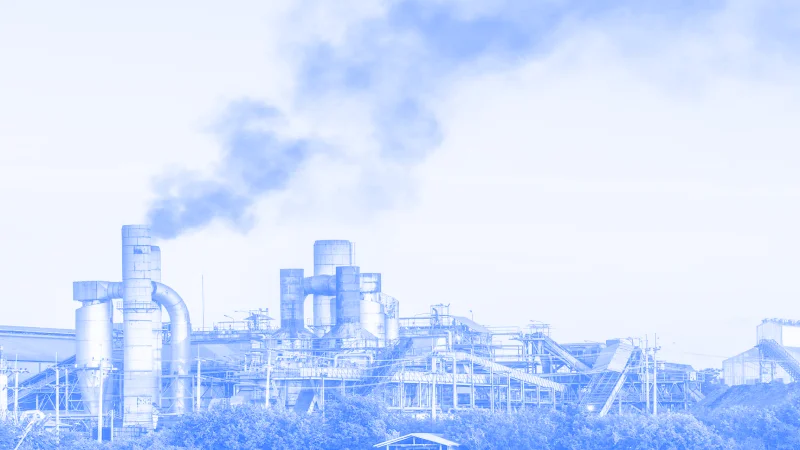

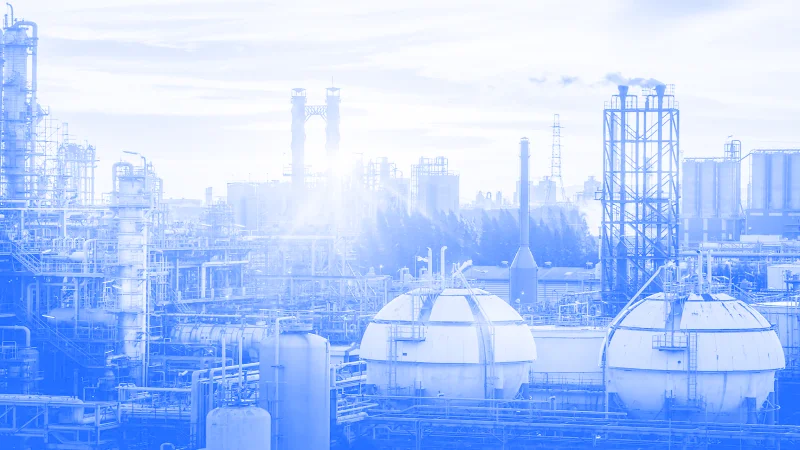




Numerous Benefits

Benefits for the Environment
- Reduction of CO2 emissions by 29%, which significantly reduces the impact on global warming.
- Reduction of PM emissions by 75%, improving air quality.
- Reduction of fuel consumption by 10%, which leads to less exploitation of natural resources.
- Extended fuel storage period by 300%, which reduces the waste of resources.
- Improvement of the quality of the natural environment and protecting biodiversity thanks to lower emissions of harmful substances.
Benefits for the Economy
-
Multi-billion savings on emission rights trading (ETS).
-
Stimulation of innovation and technological development in the fuel sector and dependent sectors.
-
Solving the problem of the “Green Deal” in agriculture.
Maintaining and creating new jobs. -
Reducing health care costs thanks to better air quality.
-
Possibility to export technology, which may bring additional income to the domestic economy.
-
Increasing competitive advantage and additional drive for the economy.
-
Increasing the attractiveness of enterprises for new investments.
Benefits for the Army
- Reduction of fuel consumption, which can lead to greater mobility and longer operation of military units.
- Reduction of emissions, which is important when operating in areas requiring high ecological standards.
- Greater energy independence thanks to extended fuel storage time.
- Better performance and range of military vehicles without the need to modify the engines.
- Reduction of operating costs related to fuel.
Benefits for the Energy Industry
- Reduction of CO2 emissions, which makes it easier to meet emission standards and avoid financial penalties.
- Extension of fuel storage period, which is beneficial for strategic stocks.
- Improvement of the energy efficiency in the sector.
- Ability to integrate with renewable energy sources thanks to lower environmental impact.
Benefits for Agriculture
- Reduction of fuel costs, which is important for maintaining production competitiveness.
- Reduction of costs related to the need to adapt to the requirements of the “Green Deal”.
- Less negative environmental impact, which is key to maintaining soil and crop health.
- Increased efficiency of agricultural machinery without the need for modifications.
- Ability to use older vehicles and machines without having to replace them.
- Improved air quality in rural areas.
- Greater compliance with organic standards, which may be beneficial for agricultural exports.
- Improved farm’s image as pro-ecological.
Benefits for Entrepreneurs
- Reduction of operating costs thanks to lower fuel consumption.
- Possibility to increase competitiveness thanks to lower emissions.
- Better compliance with ecological standards without the need for large investments.
- Improvement of the company’s image as pro-ecological.
- Greater financial stability thanks to lower production costs.
Benefits for the Health Service
- Improvement of air quality, which reduces the number of respiratory diseases.
- Reduction in the number of hospitalizations and deaths related to air pollution.
- Reduction of the cost of treating pollution-related diseases.
Improving the overall health of society.
Benefits for Shipping and Aviation
-
Significant reduction in CO2 emissions and PM particles, which is important for the protection of marine ecosystems.
-
Reduced fuel consumption, which reduces operating costs.
-
Extending the shelf life of fuel, which is beneficial during long cruises.
Improving ship performance without the need for engine modifications.
Better compliance with international emission regulations.
Medium-density oils and mazut as marine fuels with our component will work great on ships (without costly investments in catalytic converters and replacement of propulsion engines).
Mazut is also an important fuel for marching on ships. Our component causes afterburning of all fractions in the combustion process itself and significantly extends service intervals, at the same time it works perfectly in all heavy oils dedicated to professional power generation.
Q18 can also be used in aviation fuels:
- Instantly reduces CO2 emissions, helping you meet stringent aviation emissions standards.
- Reduction in fuel consumption, which lowers airline operating costs.
- Extension of fuel storage period, which is beneficial for logistics.
- Reduction of PM emissions, and improvement of air quality around airports.
- Better performance of aircraft engines without the need to modify them.
Benefits for the Oil Industry
- Stimulation of fuel sales by improving quality and environmental values (meeting stringent emission standards).
- Increased competitiveness in the context of new low-emission technologies.
- Ability to offer more ecological fuels, which increases the attractiveness to customers.
- Extending the shelf life of fuel, which reduces losses and increases profitability.
- Increased sales thanks to the attractiveness of the product.
- Improving the image of companies as innovative and pro-ecological.
- Possibility to cooperate with governments and environmental organizations.
Benefits for Car Manufacturers
- Ability to offer vehicles that meet strict emission standards without the need for modifications.
- Increased attractiveness of “traditional” technologies thanks to compliance with new standards.
- Extended period and reduced costs of transformation to new types of engines.
- Improved the brand’s image as pro-ecological and innovative.
- Opportunity to work with fuel producers and governments to promote green solutions.
- Stimulation of innovation and participation in research into new fuel technologies.
Benefits for Transport Companies
- Reduction of operating costs thanks to lower fuel consumption.
- Reduction of emissions, which improves compliance with environmental standards.
- Prolonged life of the fleet, engines, and DPF filters (approximately 300%) thanks to better fuel quality.
- Improved company’s image as pro-ecological.
- Ability to use even older vehicles without having to replace them.
Benefits for Drivers
- Ability to meet emission standards without the need for costly modifications or investments in new vehicles.
- Reduced fuel costs thanks to lower consumption.
- Better engine performance and longer vehicle life.
- Possibility to access city centers where entry for high-emission vehicles is prohibited.
- Savings due to less frequent servicing and lower fuel consumption.
SAVINGS IN EMISSION TRADINGAccording to the ETS system for 2023, Poland alone emitted 114.8 million* tonnes x EUR 80.82** x 29% (minimum reduction using Q18***) =
€
Thanks to our Formula, a country like Poland can save at least this much in a year, based on emission rights alone (not to mention the remaining savings)!
A 29% percentage reduction in CO₂e emissions is the minimum measured effect of using the Q18 formula (in many cases much higher results were recorded). Other countries in Europe and the United States itself have emissions at much higher levels. The budgets of individual countries can achieve much greater savings by reducing the need to purchase emission allowances and thus reducing environmental fees.
Sources:
* National Center for Emission Balancing and Management ** Weighted average price of EUA allowances from the spot market of the ICE and EEX exchanges in 2023. *** Based on independent KOMTRAX™ testing
“Q18 Is The Missing Link In The Hydrocarbon Fuel Production. If We Had Developed This Technology Earlier, The World Now Would Be Not Standing At The Edge of Climate Disaster!”

Based on: www.eea.europa.eu
Comments:
– The graph shows the trend in greenhouse gas emissions from the transport sector since 1990 and the forecast until 2040 at EU level (EU-27). The 2023 values are preliminary estimates reported by Member States.
– The given values include all emissions from domestic transport. They do not include international aviation and international maritime transport, or emissions related to the production of electricity used in transport (e.g. trains, trams, electric vehicles).
– The ‘with existing measures’ projection scenario reflects the impact of existing policies and measures on future emissions, while the ‘with additional measures’ scenario also includes further planned policies and measures notified by Member States.
– If breakthrough solutions to reduce gas emissions are not implemented, despite the most “optimistic” forecasts, the only thing we can count on is a reduction in emissions to a level similar to that from 3 decades ago.
– Chart Q18 shows the total GHG reduction, resulting from the minimum measured emissions reduction (29%).







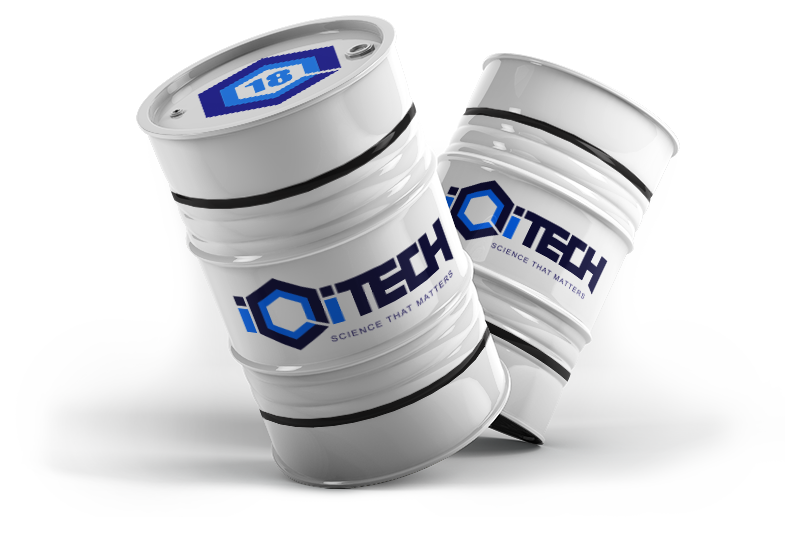
Q18™ is a breakthrough fuel ingredient that drastically reduces greenhouse gas emissions by optimizing combustion processes. Our patented, innovative technology ensures a clean and sustainable transition to fully renewable energy sources. Ready for immediate implementation on a massive scale!
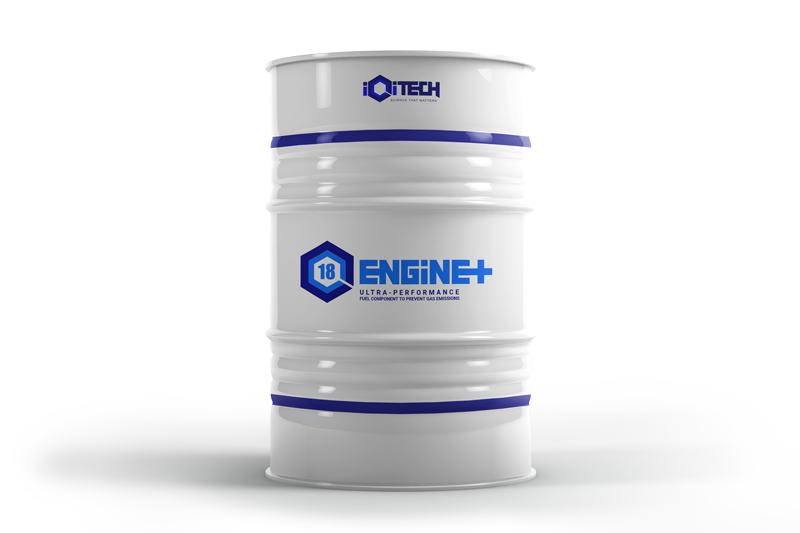
Q18 ENGINE +
Ultra-Performance Fuel Component To Reduce GHG Emissions
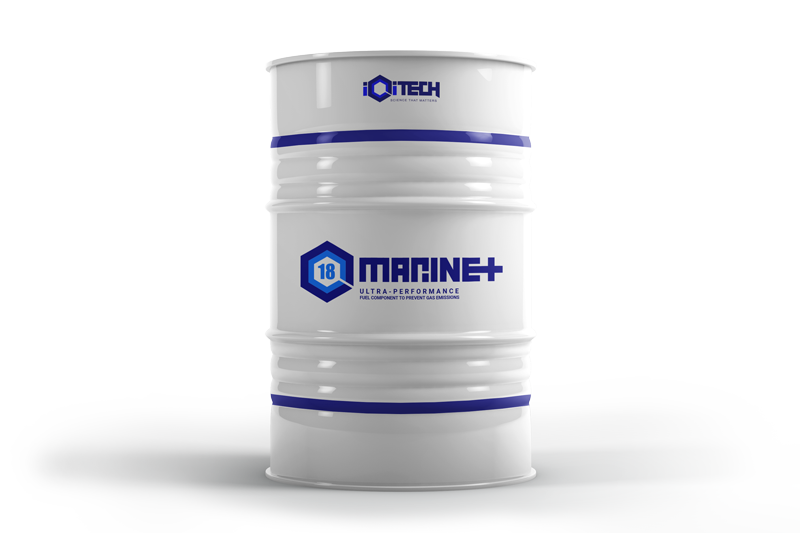
Q18 MARINE +
Ultra-Performance Marine Fuel Component To Reduce GHG Emissions
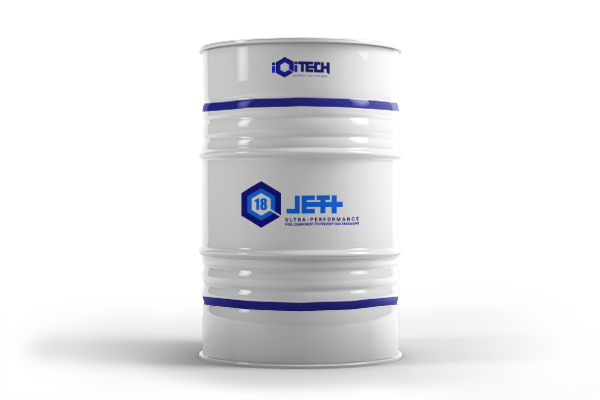
Q18 JET +
Ultra-Performance Jet Fuel Component To Improve Its Characteristics To Meet The A3 Class Demands
Tests & Certifications
Sample Working Test Conducted on 132 KOMATSU Road Machines Using Fuel Enriched with Our Component

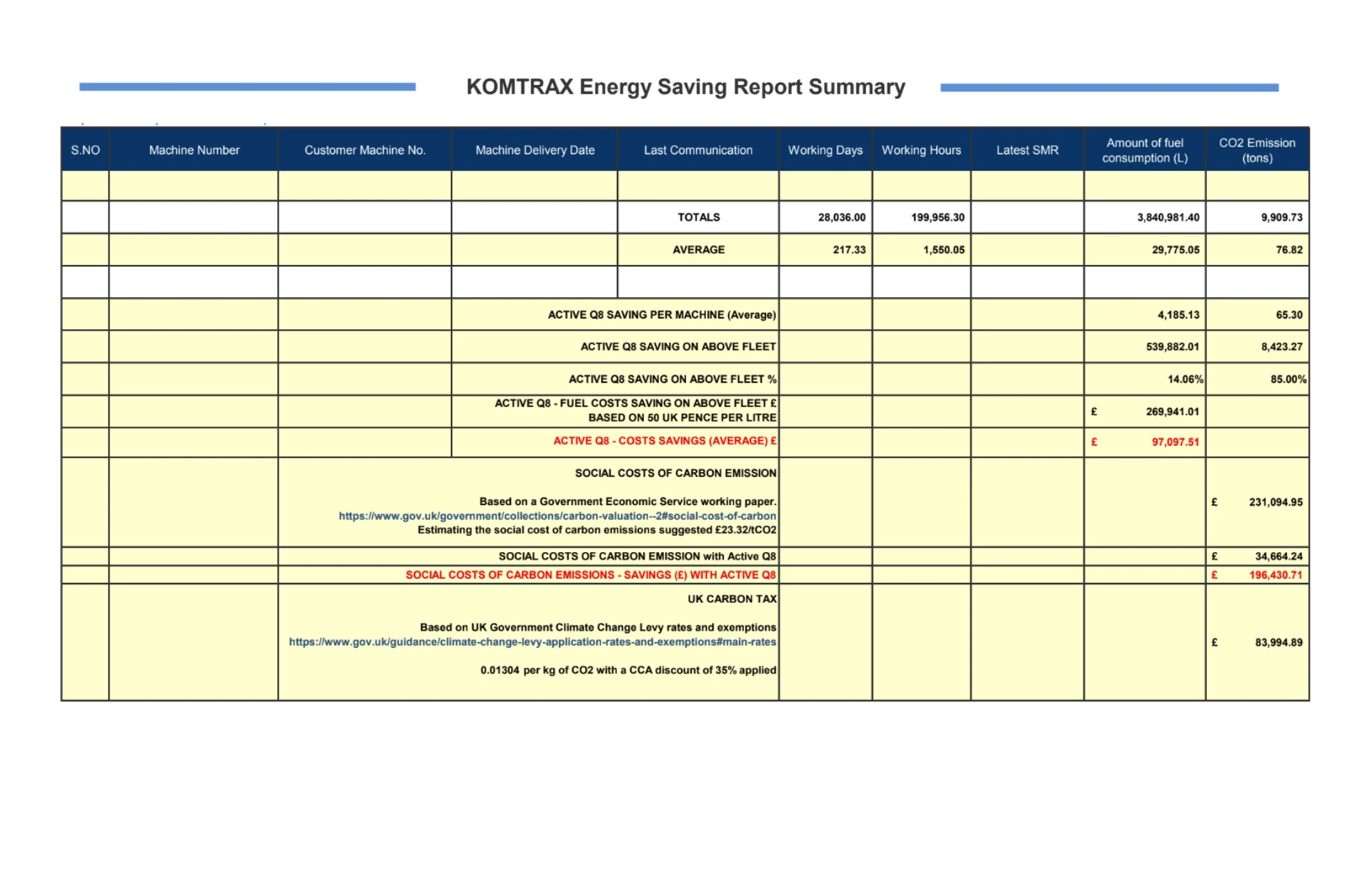
* The name ‘Active Q8’ – has now been replaced by the new trade name ‘Q18™’
** All information shared by us has been supported by appropriate research, which is available for insight by interested parties. Our formula is patented and protected by international and European law.



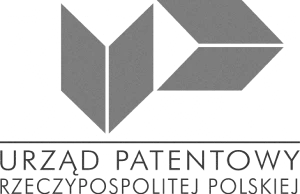




Contact Us
Choose one of our departments


